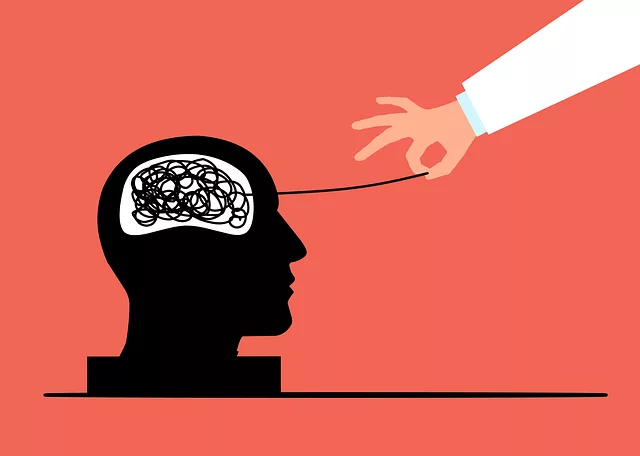Kaiser Permanente Behavioral Health Services in Golden leads in culturally sensitive mental healthcare by prioritizing diversity and equity. They empower providers through training on unconscious bias, cross-cultural communication, and stress management tailored to diverse communities. Effective communication strategies bridge cultural gaps, fostering trust and open dialogue for accurate assessments and personalized treatment. Integrating cultural competence into treatment plans ensures inclusive, effective care that respects patients' backgrounds and values, enhancing outcomes and strengthening mental health policy analysis.
Mental healthcare practices must embrace cultural sensitivity to effectively support a diverse range of patients. This article explores the critical components of providing inclusive care, drawing insights from industry leaders like Kaiser Permanente Behavioral Health Services, known for its commitment to cultural competence. We delve into strategies for recognizing and overcoming unconscious biases, enhancing communication with culturally diverse individuals, and integrating best practices informed by golden standard services. Understanding these elements is essential for mental health professionals aiming to deliver compassionate, effective care to all.
- Understanding Cultural Diversity in Mental Healthcare: A Necessary Foundation
- The Role of Kaiser Permanente Behavioral Health Services in Promoting Cultural Sensitivity
- Recognizing and Addressing Unconscious Bias in Clinical Practice
- Effective Communication Strategies for Culturally Diverse Patients
- Integrating Cultural Competence into Treatment Plans: Best Practices from Golden Standard Services
Understanding Cultural Diversity in Mental Healthcare: A Necessary Foundation

Mental healthcare practices must embrace cultural sensitivity to provide effective treatment for a diverse patient population. In the United States, like in many countries, there is an increasing need to address the unique challenges faced by individuals from various ethnic, racial, and cultural backgrounds when seeking behavioral health services. This understanding is crucial, especially considering that Kaiser Permanente behavioral health services serve a wide range of communities across different regions.
Golden principles of cultural sensitivity include recognizing and valuing diversity, promoting cross-cultural communication, and ensuring equitable access to care. By integrating these practices, mental healthcare providers can foster environments that support the development of inner strength and anxiety relief for all patients. Stress management techniques tailored to individual cultural contexts can significantly improve outcomes, reflecting a holistic approach to wellness that respects and embraces the richness of diverse communities.
The Role of Kaiser Permanente Behavioral Health Services in Promoting Cultural Sensitivity

Kaiser Permanente Behavioral Health Services plays a pivotal role in promoting cultural sensitivity within mental healthcare. With its extensive reach and commitment to diverse communities, Kaiser Permanente offers valuable resources and programs tailored to address unique cultural challenges. Through Self-Awareness Exercises, crisis intervention training, and burnout prevention strategies for healthcare providers, they empower professionals to deliver more effective care.
In Golden and beyond, these services foster an environment of inclusivity, ensuring that every patient receives support that respects their background, beliefs, and values. By integrating cultural competency into their practices, Kaiser Permanente Behavioral Health Services not only improves patient outcomes but also enhances the overall well-being of healthcare providers, creating a more harmonious and effective mental healthcare system.
Recognizing and Addressing Unconscious Bias in Clinical Practice

Unconscious bias, often invisible to the individual holding it, can significantly impact clinical interactions and patient outcomes in mental healthcare. This is especially relevant for diverse communities seeking support from organizations like Kaiser Permanente’s behavioral health services. For instance, cultural norms and experiences may influence how a patient expresses distress or responds to treatment recommendations. A clinician’s unconscious bias could misinterpret these cues, leading to misdiagnosis or inappropriate care.
Addressing this requires self-reflection and ongoing education among mental health professionals. Integrating practices like mindful awareness and regular debriefing sessions can help identify and mitigate biases. Additionally, incorporating tools such as cultural competency training and the Mental Wellness Journaling Exercise Guidance can facilitate more nuanced understanding of patients’ backgrounds. By fostering a culture of resilience building within the healthcare system, both Kaiser Permanente and its clients can work towards more equitable and effective mental wellness support.
Effective Communication Strategies for Culturally Diverse Patients

Effective communication is a cornerstone of successful mental healthcare, especially when serving a culturally diverse patient population. At Kaiser Permanente behavioral health services Golden, professionals are trained to adopt tailored Communication Strategies that bridge cultural gaps and foster trust. This involves actively listening, using clear and inclusive language, and demonstrating empathy towards patients’ backgrounds and beliefs. By creating a safe and non-judgmental environment, healthcare providers encourage open dialogue, which is crucial for accurate assessments and effective treatment planning.
The Risk Management Planning for Mental Health Professionals often emphasizes the importance of cultural sensitivity training. This includes learning about various cultural norms, values, and communication styles to avoid misunderstandings or misinterpretsions. Additionally, regular Stress Management Workshops Organization can equip professionals with tools to navigate complex conversations and respond appropriately to patients’ unique needs. Such proactive measures ensure that culturally diverse individuals receive high-quality, respectful care.
Integrating Cultural Competence into Treatment Plans: Best Practices from Golden Standard Services

Integrating cultural competence into treatment plans is a best practice adopted by leading services like Kaiser Permanente behavioral health services. This approach recognizes that mental healthcare is not one-size-fits-all, but must account for individual and community cultural contexts. By incorporating cultural sensitivity, mental health professionals can create more personalized, effective, and inclusive care plans. This involves understanding the patient’s cultural background, values, beliefs, and traditions to tailor interventions that resonate with them.
Golden standard services emphasize the importance of continuous learning and adaptation in cultural competence. They encourage ongoing training for mental health professionals to stay updated on diverse cultural practices and mental wellness trends. Moreover, these services promote open communication between patients and providers from different cultural backgrounds, fostering an environment where individuals feel heard, respected, and understood. This not only enhances patient outcomes but also strengthens the overall mental health policy analysis and advocacy, aligning with best practices in risk management planning for mental health professionals.
Cultural sensitivity in mental healthcare is not just a preference, but an essential component for effective treatment. As evidenced by the practices of Kaiser Permanente Behavioral Health Services and highlighted by golden standard models, integrating cultural competence into care plans leads to better patient outcomes. By recognizing and addressing unconscious bias, adopting effective communication strategies, and understanding diverse cultural contexts, mental health professionals can provide more inclusive and compassionate care. This approach not only respects patients’ identities but also fosters trust and encourages open dialogue, ultimately enhancing the overall therapeutic process.






